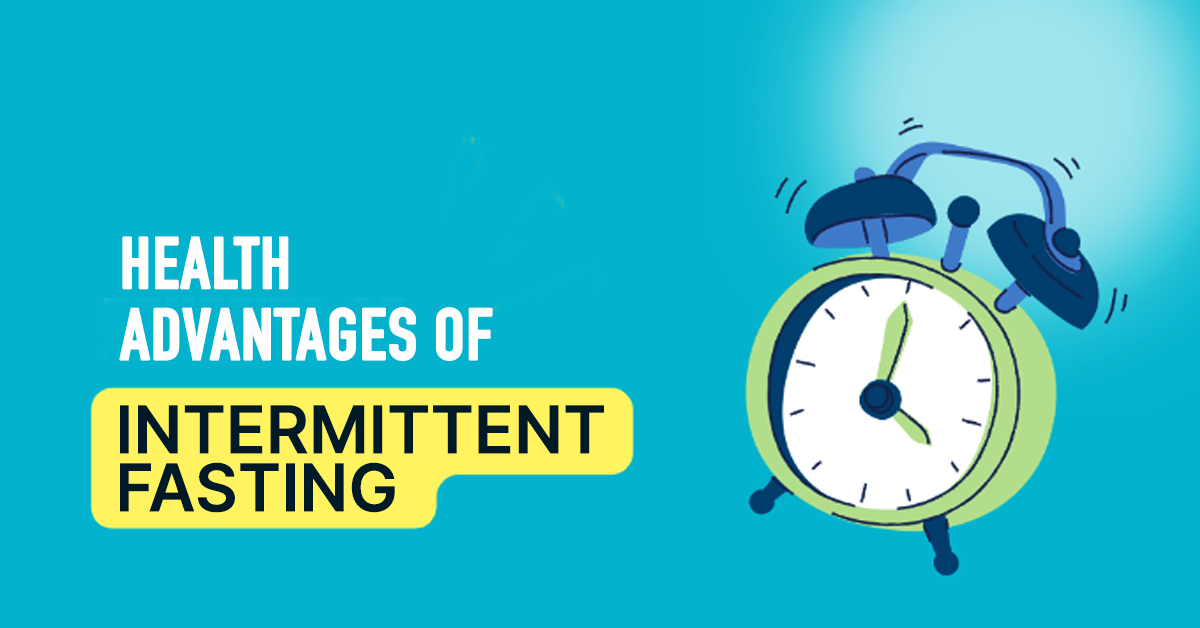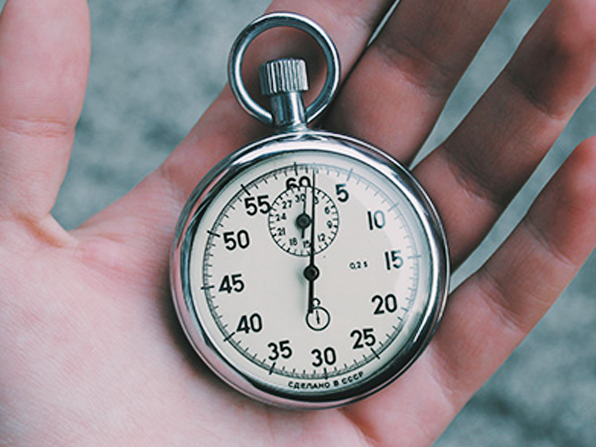
One of the most common questions I get asked by people I train is:
Can fasting help you lose weight?
Yes, it can. Fasting has a long history of being used for medical purposes and recently gained popularity as a weight loss method. Many studies have supported the efficacy of intermittent fasting, particularly for those seeking a sustainable and flexible approach to weight management.
As Krista Varady from the Univeristy of Illinois Chicago stated:
“People love intermittent fasting because it’s easy. It’s definitely effective for weight loss, and it’s gained popularity because there are no special foods or apps necessary.”
In this article, I'll go through the most common types of intermittent fasting, how it promotes weight loss, and the additional health benefits that I'm aware of.
I hope by the end, you'll understand whether fasting for weight loss suits you.
Key Takeaways
» Intermittent fasting offers flexibility in eating schedules, promoting weight loss by creating a calorie deficit without strict counting.
» These eating patterns can also help you improve metabolism, blood sugar control, heart health, support cellular repair, and more.
» Consult healthcare professionals before starting intermittent fasting if you have special health conditions or nutritional needs.
So, What is Intermittent Fasting Exactly?
In simple words, intermittent fasting is a lifestyle change that involves restricting your eating to specific periods without the hassle of counting calories.
The idea is to create an eating schedule that extends fasting periods by shortening your eating window. This method lets your body switch from burning glucose to burning fat for energy.
In other words, it stimulates the fat burning process.
The Most Common Intermittent Fasting Plans
Now, there are many different fasting types I've heard about, but I'll only cover those that, based on my experience, are proven to work.
The 16/8 method involves fasting for 16 hours and eating within an 8-hour window. This method is among the simplest and most widely practiced.
Another popular method is the 5:2 approach. That means you eat normally for five days a week and restrict your calorie intake to 500-600 on two non-consecutive days.
Alternate-day fasting involves consuming only 500 calories every other day. I recommend it to folks who prefer a more structured approach, as it allows for regular feeding days.
You may also come across the Warrior Diet. Another time-restricted eating protocol (fasting for 20 hours followed by a 4-hour eating window). But I suggest avoiding it as it may be unhealthy for most people.
Of course, each intermittent fasting protocol can be slightly adjusted to suit your lifestyle…and I'm pretty sure there’s a plan that can work for you.
Now, let's talk about how fasting affects your body and why it is better than a typical low-calorie diet…particularly for those starting their first weight loss journey.
How Intermittent Fasting Promotes Weight Loss
Intermittent fasting has gained popularity for good reason. But how exactly can it help you lose weight? I'll break it down into three main components: calorie restriction, improved metabolism, and hormonal changes.
Caloric Restriction
Limiting your eating window, you tend to consume fewer calories overall, creating a negative energy balance. This means you’re burning more calories than you’re taking in. I'm sure you know this is essential for weight loss.
Intermittent fasting is by far the best way to cut calories without counting every meal. From the feedback of people I work with, it's easier to stick to in the long run once you get used to it.
Like any normal diet, to maximize the benefits of caloric restriction, you need to consume foods rich in nutrient-dense during eating periods. Think whole grains, lean proteins, and plenty of veggies.
Besides focusing on a healthy diet, proper hydration also enhances the effects of intermittent fasting on weight loss and overall well-being.
Improved Metabolism
During fasting, your body undergoes a metabolic switch, shifting from using glucose for energy to burning stored fat. As you probably guessed, it makes it even more effective for losing weight.
Studies I've read over the years suggest intermittent fasting can increase your metabolic rate from 3% to over 10%. That means you’ll be burning calories even while watching a movie…at least, that's how it sounds to me!
Staying hydrated is again critical here as it reduces feelings of hunger, further boosts your metabolism, and, most importantly…drinking more water stimulates the thermogenesis process in your body.
Hormonal Changes
Hormonal changes play a significant role in the weight loss effects of intermittent fasting.
For example, insulin (IGF) and growth hormone (GH) are impacted when fasting, which influences body fat storage and energy accessibility.
If that topic interests you, I have another article on the 6 fat burning hormones.
Another hormone I'd like to mention is Leptin. While high levels of it are good for regulating energy balance by inhibiting hunger, leptin resistance often occurs in individuals with obesity…and fasting helps maintain healthy leptin levels.
If you want to maximize your weight loss efforts, incorporating quality thermogenic supplements is something to consider.
The BELDT Labs SKALD fat burner, for example, is designed to increase the effects of intermittent fasting and has been proven to work by over 2,000 customer reviews.

How Fasting is Good for Health Beyond Weight Loss?
While most people are interested in fasting for weight loss, I think learning about some other health advantages will help you make more informed decisions.
I'm not a doctor, but I have read many studies on the topic, suggesting that this eating pattern can boost cognitive function, reduce chronic disease risk, enhance overall metabolic health, etc.
Let me share my knowledge about some of these health benefits.
Fasting Can Help Regulating Blood Sugar Levels
By improving insulin sensitivity, intermittent fasting helps regulate blood sugar levels more effectively. Lower insulin production during fasting periods contributes to reduced blood sugar levels, which is particularly beneficial for individuals with insulin resistance.
According to one of the Jefferson Health articles, the 16/8 method seems the most effective.
“Fasting for at least 16 hours gives the body a chance to rest and decreases blood insulin levels. Not only does this help burn fat, it can also lower your risk of disease, particularly diabetes, and pre-diabetes”
Fasting Lowers Blood Pressure and Cholesterol
Intermittent fasting has shown promise in improving heart health by positively impacting several cardiovascular metrics.
I've met people claiming it helped them lower blood pressure and reduce resting heart rates. Another significant benefit is lowering LDL cholesterol, or “bad” cholesterol.
These changes contribute to cardiovascular health and could potentially reduce the risk of heart disease.
Fasting Triggers Cellular Repair Mechanisms
Fasting triggers cellular repair mechanisms that help protect against age-related diseases and may contribute to increased lifespan…and I know this because I recommended it to my aunt.
At 55, Aunt Linda was struggling with weight gain and signs of aging that made her feel less confident. I told her about intermittent fasting, she did her due diligence and decided to give it a try.
Long story short, she started with the 16/8 method. Less than 12 months later, not only did Aunt Linda lose weight, but her skin also began to look more youthful.
Few Tips for Successful Intermittent Fasting
Committing to intermittent fasting has been quite challenging for most people I know. So, here are some practical tips to get you started and unlock the fat loss secrets.
Start with Shorter Fasting Durations
Transitioning to intermittent fasting should be gradual to help your body adjust comfortably. My advice is to start with shorter fasting durations and progressively extend them.
For example, begin with a 12-hour fasting window and gradually increase it to 16 hours. It helps most people to minimize discomfort and improve adherence.
Aim for a Balanced Diet Within Eating Windows
Nutrient-rich foods support overall health and sustain energy levels throughout the day. Focus on a balanced diet so that your body receives the essential vitamins and minerals it needs to thrive.
If you often fail to plan meals during eating periods, it can increase the risk of deficiencies. Skipping meals will exacerbate this even further.
I keep reminding people that following a structured eating schedule is essential to avoid this.
Maintaining Muscle Mass During Fasting
One of the main challenges of intermittent fasting is the potential loss of lean muscle mass. To counter this, I always make sure the people I train consume enough protein.
That means roughly 0.7 grams per pound of body weight to support muscle preservation.
I know this isn't possible for everyone, but weight training at least three times a week is also important to maintain muscle mass while losing fat during intermittent fasting.
Combining strength training with a protein-rich diet is the best way to preserve lean muscle and drop weight primarily from body fat.
Ready to embrace fasting as a transformative journey?
Enhance its benefits with the right vitamins, nutrients, amino acids, and proteins.
The Bottom Line
As you saw, intermittent fasting offers a range of benefits beyond weight loss.
Knowing the key facts for losing weight and preparing your body for fasting are necessary to reap those benefits while avoiding any health risks. If you don't feel confident, it's always better to consult a healthcare professional before starting any fasting protocol.
And finally, if you're pregnant, breastfeeding, an older adult, or dealing with chronic diseases, it's best to skip intermittent fasting. In any of these cases, your nutritional needs are a priority.




